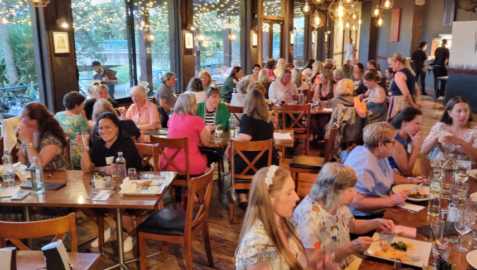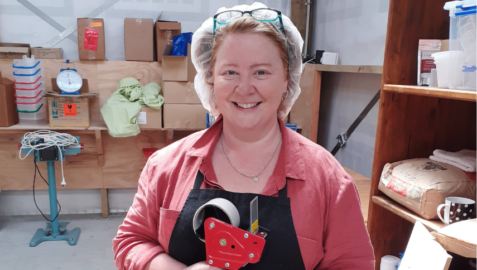
Marlborough Winegrowers Hold Wellness Week
Module Overview
Winegrowers in Marlborough are about to run their second Wine Industry Wellness Week. Industry representative Kathrin Jankowiec talks to Farmstrong about what’s in store.
Tell us a little about your background in the industry
I got into the industry 17 years ago, almost by accident. Started working in the cellar, then cellar management, worked in the lab, then as assistant winemaker and for the last eight or nine years, as a winemaker. Now I work in a support role for the industry.
When you drive past a vineyard it always looks such an idyllic work setting. Tell me about some of the pressures and challenges.
There are plenty of challenges [laughs]. For a start it’s a seasonal industry with huge peaks in terms of working hours. Harvest is such an intense period where everyone just has to knuckle down and get on with it. It’s busy in the vineyards with the grapes, then its busy in the winery getting the wine out of the tank and into bottles.
When I started, we used to work seven days a week, 12 hours or more a day until it was done. People were crawling to the finish line, but back then, when you came out of harvest, there was downtime to recover.
So, what changed?
Well, over time the wine industry expanded and became so successful that the work no longer tapered off. There was less and less time to get away from the vineyard or the operational or sales side. It became all-consuming. For a lot of people, the only break they got was at Xmas. It was like that for me too. It was so easy to just carry on working.
What impact did it have?
You can tough it out, but eventually it takes a toll. That’s why there’s been a growing voice for change. As an industry, we need to look after people better so they don’t burn out.
These are the problems of success, aren’t they?
I couldn’t agree more. The wine industry has succeeded thanks to really passionate and dedicated people. That’s what makes our industry so great. But it’s also what puts people at risk.
Is that the thinking behind Wellness Week?
Exactly. It’s an opportunity to focus on what keeps people well. There are a lot of good initiatives already underway in local wineries so we’re keen for people to share their ideas so that everyone can benefit.
Can you give an example?
Well, some businesses have moved to a six-day week to give people a proper break which is good. This gives us an opportunity to highlight that sort of thinking. One of the last year’s winners organised a staff catch-up each week over tacos so people could get together, socialise and de-stress.
Do you think people are becoming more open to these ideas?
Absolutely. Ten years ago people might have mentioned them quietly, but now they’re actually happening. Our wellness week gives everyone in the industry a chance to explore these ideas, get feedback and try new things.
What does the competition involve?
We’ve asked people to come up with ideas that make Farmstrong’s Five Ways to Wellbeing (connect with others, stay active, keep learning, notice and enjoy the small things in life, give back to friends and community) part of a working week. The idea is that people dedicate some time to look after themselves and their teams in whatever way works best for them.
What would be a good result for you?
It’s hard to measure, but over time we want to make the industry as attractive as possible to work in, especially for families and people who might have struggled with the long working hours.
How did last year’s competition go?
It was really well received. There were quite a few entries and some wineries definitely adopted ideas that they had seen. So, there’s been that cross-pollination. When you see something working elsewhere, you are much more likely to adopt it.
What’s the potential here?
The Marlborough wine industry is a huge employer. We’ve got thousands of people in the industry. We’re reaching out to everyone that’s involved to participate.
How have you managed the pressures of the industry yourself? Any advice?
I think harvest time is when you feel most under pressure. If the pressure gets to you, you’ve just got to take a breather, go for a walk, take five minutes to reset mentally and then get back into it. Getting enough sleep and eating healthily are also super important for managing fatigue. But the main thing is being aware of your own physical and mental limits.
When people are so invested in what they do, they often just want to keep working. However, eventually you get so tired that you’re not doing yourself or your business justice. It’s better to take some time for yourself, do something that really recharges you, whatever that might be, so you can keep doing the job you love.
Every year more 14,000 farmers and growers increase their wellbeing thanks to Farmstrong. For free tools and resources on managing the ups and downs of farming and growing, visit farmstrong.co.nz


